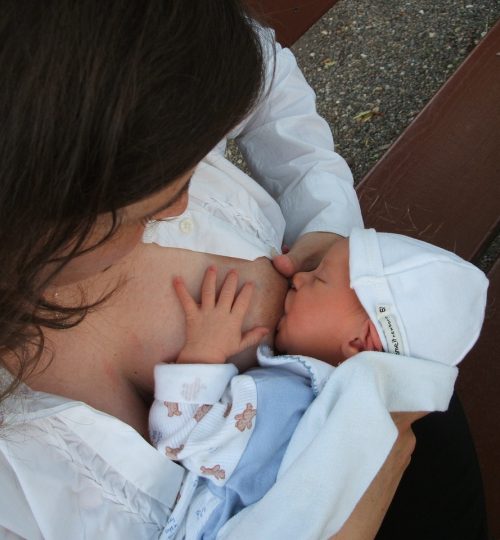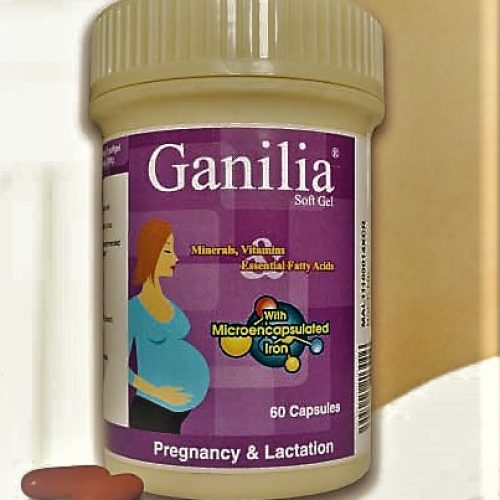breastfeeding
WHY BREASTFEEDING?
The World Health Organisation recommends exclusive breastfeeding for the first six months of your baby life.
Unneccesary introduction of bottle feeding or other food and drinks will have a negative impact on breastfeeding. After six months of age, infants should receive age appropriate foods while breastfeeding continues for up to 2 years of age or beyond.
Benefits for Baby
Breast milk is nature’s perfect baby food. It contains immunity-boosting antibodies and healthy enzymes that scientists have yet to replicate. Here are some advantages of breast milk for babies:
Protects against allergies and eczema. If there’s a history of either in your family, it may be especially beneficial for you to breastfeed. Proteins in cow’s milk and soy milk formulas can stimulate an allergic reaction, while the proteins in human breast milk are more easily digested.
Causes less stomach upset, diarrhea, and constipation than formula. This is also because breast milk is so easy for your baby’s body to break down.
Reduces the risk of viruses, urinary tract infections, inflammatory bowel disease, gastroenteritis, ear infections, and respiratory infections. “The incidences of pneumonia, colds, and viruses are reduced among breastfed babies,” says infant-nutrition expert Ruth A. Lawrence, M.D., a professor of pediatrics and OB-GYN at the University of Rochester School of Medicine and Dentistry in Rochester, N.Y., and the author of Breastfeeding: A Guide for the Medical Profession (Elsevier-Mosby). Additionally, formula-fed infants are three times more likely to suffer from ear infections than breastfed babies, and up to five times more likely to suffer from pneumonia and lower respiratory-tract infections.
Makes vaccines more effective. Research shows that breastfed babies have a better antibody response to vaccines than formula-fed babies.
Protects against diseases such as spinal meningitis, type 1 diabetes, and Hodgkin’s lymphoma. You pass your baby immune factors and white blood cells through breast milk.
May make your baby smarter. Research is still inconclusive, but studies are pointing toward breastfed babies having higher IQ scores later in life, even when taking socioeconomic factors into consideration. The fatty acids in breast milk are thought to be the brain boosters.
Could help prevent obesity. Some studies show that breastfed infants are less likely to be obese later in life. The theory is that nursing mothers get in tune with signals that their baby is full, and don’t overfeed.
Brings baby close to you. Bottle fed babies form bonds with their parents too, of course, but the skin-to-skin contact of breastfeeding is reassuring to a newborn.
Benefits for Mom
The benefits of breastfeeding don’t only extend to your baby. It turns out that breastfeeding can boost your health as well, since it:
Lowers your risk of breast and ovarian cancer. Studies show that women who breastfeed have less risk of these cancers later in life.
Helps you lose pregnancy weight. Because milk production burns about 300 to 500 calories a day, nursing mothers tend to have an easier time losing pregnancy weight in a healthy way—that is, slowly and without dieting.
Triggers your uterus to shrink back to pre-pregnancy size. In fact, in the first few weeks, you might feel mild contractions while you’re nursing.
May lower your risk of osteoporosis. Women who breastfeed have a lower risk of postmenopausal osteoporosis. When a woman is pregnant and lactating, her body absorbs calcium much more efficiently.
Heals your body after delivery. The oxytocin released when your baby nurses helps your uterus contract, reducing post-delivery blood loss. Plus, breastfeeding will help your uterus return to its normal size more quickly—at about six weeks postpartum, compared with 10 weeks if you don’t breastfeed.
Delays menstruation. Breastfeeding your baby around the clock—no bottles or formula—will delay ovulation, which means delayed menstruation. Breastfeeding causes the release of prolactin, which keeps estrogen and progesterone at bay so ovulation isn’t triggered. When your prolactin levels drop, those two hormones can kick back in, which means ovulation and, hence, menstruation occurs. Even if you do breastfeed exclusively, your prolactin levels will eventually drop over the course of several months. Many moms who solely nurse will see their periods return between six and eight months after delivery.
Can give you some natural birth-control protection. Granted, it’s not as reliable as the pill or most other forms of birth control, but breastfeeding can keep you from ovulating if you follow these guidelines: Your period must not have resumed; you must breastfeed at least every four hours around the clock; you must not give your baby any pacifiers, bottles or formula; and you must be less than six months postpartum.
Gives you closeness with your baby. Most moms cite this as the biggest benefit of breastfeeding. Nursing is something special the two of you share. You and baby exchange looks, noises, and cuddles during a nursing session, and communicate love to each other.
Saves you money. Breastfeeding is essentially free. Even if you choose to buy an electric pump, a nursing pillow, and several nursing bras, you’ll still only spend about half the cost of a year’s supply of formula.
Gives you less time off work. Your baby will be ill less often, so that means fewer sick days for you.
Cultivates friendships. Breastfeeding helps cultivate relationships with other mom. Whether it’s talking about parenting styles, nighttime feedings or engorgement, nursing allows women to forge positive postpartum relationships.
Makes you more eco-friendly. Dairy cows, which are raised in part to make infant formula, are a significant contributor to global warming: Their belching, manure and flatulence (really!) spew enormous amounts of methane, a harmful greenhouse gas, into the atmosphere




GANILIA for breastfeeding
Most medical professionals will agree that breastfeeding is the healthiest and best way to feed your new baby. In addition to providing essential vitamins and nutrients, breast milk also helps protect your baby against infection.
The energy demands on a mother’s body during the initial period of breastfeeding is greater than during the latter part of pregnancy, especially if she is taking care of other children. EPA(Eicosapentanoic Acid) and DHA (Docosahexanoic Acid) occur together in nature and work synergistically together. An excellent way to meet your need for these essential fatty acids is by taking Ganilia during Pregnancy and Breastfeeding.
The production of breast milk requires an additional average of 640 calories per day. Optimal milk production requires a total caloric intake of at least 2,000 calories daily. One of the primary energy sources for breastfeeding is from fat storage from the diet. This requires an additional 500 calories from fat a day, just for the formation of healthy breast milk. A reserve needs to be left over for mom so that she can maintain her own levels of Omega-3s for mental clarity and tissue integrity. Fish oil supplementation is rapidly becoming an essential part of a healthy, balanced diet for both mom and baby.
In addition to this, the omega-3 fatty acids contained in fish and fish oil, including eicosapentanoic acid (EPA) and docosahexanoic acid (DHA), have an antidepressant effect. It has been discovered that mothers selectively transfer DHA to their baby during pregnancy and through the breast milk to support neurological development in the developing child. Thus, child-bearing women may become depleted of DHA, and it has been hypothesized that DHA deficiency may make mothers more vulnerable to depression during the postpartum period. (Note : Supplementing the mother’s diet with the omega-3 fatty acid, DHA, after the delivery does not decrease the risk for depression).




